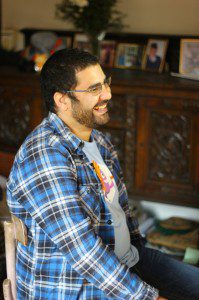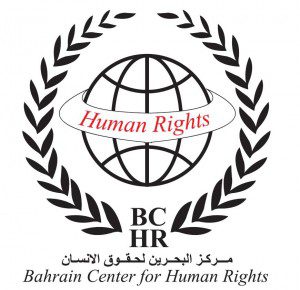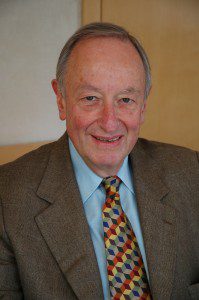29 Feb 2012 | Leveson Inquiry
A police officer today told how there had been fears of violence during a search of the News of the World premises during an investigation into phone hacking.
In written evidence referred to today in court, DCS Keith Surtees described how one officer “was concerned at the time that NOTW staff may offer some form of violence against the small police team in the building”. Surtees also said that officers had been surrounded and photographed by photographers from several News International publications, and that some had been refused entry to the building. The search took place in 8 August 2006, as part of of Operation Caryatid, the investigation which led to the jailing of Glenn Mulcaire and Clive Goodman. Surtees was the Investigating Officer of the operation.
News International rejects any allegation that there could have been an air of violence during the search.
The Inquiry also heard from DI Mark Maberly, who confirmed that information belong to people on Witness Protection programmes had been found in Glenn Mulcaire’s notes. Lord Justice Leveson expressed alarm at that fact, describing such information as “Not just sensitive – horribly sensitive”.
The hearing resumes tomorrow with video evidence from former Met Assistant Commissioner John Yates, who is currently working with the regime in Bahrain.
In seperate developments, it was announced that James Murdoch had resigned as Executive Chair of News International.
Meanwhile, at Westminster, Tom Watson MP called for an inquiry into the death of priavte investigator Daniel Morgan, amid speculation that News International resources may have been used to undermine a 2002 investigation.
Follow Index on Censorship’s coverage of the Leveson Inquiry on Twitter – @IndexLeveson
29 Feb 2012 | Uncategorized
Index on Censorship is proud to present the shortlist for the Freedom of Expression awards 2012. Check out the full list of nominees
29 Feb 2012 | Leveson Inquiry
A police officer who participated in the initial investigation into News of the World phone hacking today strongly denied that the Metropolitan Police had tried to minimise the impact of the scandal during the initial investigation in 2006.
Appearing at the Leveson Inquiry today, Phillip Williams, Detective Chief Superintendent of the Metropolitan Police Service, said that the force had been determined to gain convictions in the original prosecution of investigator Glenn Mulcaire and News of the World royal correspondent Clive Goodman, who were jailed in 2007 for phone hacking. Saying he could have stopped the investigation at any point, Williams stressed he was determined that there should be publicity surrounding the case. Williams agreed when Jay posited that News International had been unhelpful and obstructive in the investigation.
Quizzed on why the Metropolitan Police had not informed all 418 of the people identified by Mulcaire as hacking targets, Williams said only those who he felt definitely had been hacked had been informed. This included Rebekah Brooks (née Wade), then editor of the Sun and later News of the World editor.
Williams said he had not called in a broad range News of the World journalists because he believed this tactic would merely lead to a string of “no-comment” interviews. When quizzed by Robert Jay QC as to why he had not pursued the person mentioned in the infamous “For Neville” email (chief reporter Neville Thurlbeck), Williams reiterated that he would not interview someone merely on the basis of a first name.
Asked if he was angered by News International’s insistence that Goodman had been a lone rogue reporter, Williams said he had been “realistic”, understanding the company’s efforts to protect its reputation.
Follow Index on Censorship’s coverage of the Leveson Inquiry on Twitter – @IndexLeveson
29 Feb 2012 | Awards
Recognising campaigners or activists who have fought repression, or have struggled to challenge political climates
Alaa Abd El Fattah, blogger, Egypt
 Alaa Abd El Fattah is at the forefront of protests against Egypt’s current military rule. Over the last 12 months, the Supreme Council of the Armed Forces (SCAF) has tried to silence dissent, crushing protests, restricting the media and questioning and imprisoning activists who criticise its actions.
Alaa Abd El Fattah is at the forefront of protests against Egypt’s current military rule. Over the last 12 months, the Supreme Council of the Armed Forces (SCAF) has tried to silence dissent, crushing protests, restricting the media and questioning and imprisoning activists who criticise its actions.
Abd El Fattah is one of an estimated 12,000 civilians tried by military courts since the fall of Mubarak. The blogger and activist was arrested on suspicion of inciting violence against the military during clashes between the security forces and Coptic Christians. He was jailed on 31 October 2011 after he refused to recognise the legitimacy of the military interrogators in overseeing civilian trials. He was released pending investigation on 25 December, but continues to speak out against SCAF.
Bahrain Centre for Human Rights, NGO, Bahrain
 The Bahrain Centre for Human Rights (BCHR) has played a crucial role in documenting human rights violations, political repression and torture in the Gulf kingdom. Despite efforts to silence and discredit it, the BCHR has kept international attention on the brutal government crackdown that began last February. It has prevented the Bahrain government from whitewashing its international image, and at times when news media were severely restricted and foreign journalists barred, it acted as a crucial news source.
The Bahrain Centre for Human Rights (BCHR) has played a crucial role in documenting human rights violations, political repression and torture in the Gulf kingdom. Despite efforts to silence and discredit it, the BCHR has kept international attention on the brutal government crackdown that began last February. It has prevented the Bahrain government from whitewashing its international image, and at times when news media were severely restricted and foreign journalists barred, it acted as a crucial news source.
Former BCHR president Abdulhady al Khawaja is one of eight activists serving life sentences for peacefully protesting at the Pearl Roundabout which has since been demolished. Like many other activists he claims he has been tortured in prison. BCHR employees regularly experience threats, violence and harassment. In January 2012, BCHR president Nabeel Rajab was severely beaten by security forces while peacefully protesting.
Lord Lester of Herne Hill, QC, UK
 Anthony Lester is a British barrister and Liberal Democrat peer whose work in the field of human rights has transformed the legal landscape. His support for the libel reform campaign has led to one of the greatest advances for free speech in recent years in the UK, potentially transforming the most infamous and enduring chill on freedom of expression in the country. Following the introduction of Anthony Lester’s private member’s defamation bill in May 2010, the government then used it as the basis for its own bill a year later. If it becomes law this year, it will mark the end of London’s notorious reputation as “a town named sue”, the libel capital of the world, and fulfil Anthony Lester’s personal aim of providing a “catalyst for reform” in an historic moment for free speech in the UK.
Anthony Lester is a British barrister and Liberal Democrat peer whose work in the field of human rights has transformed the legal landscape. His support for the libel reform campaign has led to one of the greatest advances for free speech in recent years in the UK, potentially transforming the most infamous and enduring chill on freedom of expression in the country. Following the introduction of Anthony Lester’s private member’s defamation bill in May 2010, the government then used it as the basis for its own bill a year later. If it becomes law this year, it will mark the end of London’s notorious reputation as “a town named sue”, the libel capital of the world, and fulfil Anthony Lester’s personal aim of providing a “catalyst for reform” in an historic moment for free speech in the UK.

supported by






